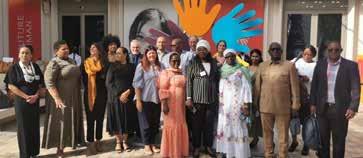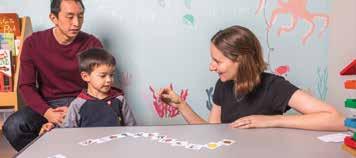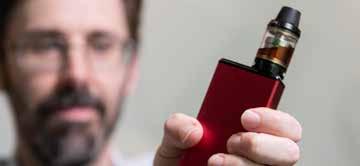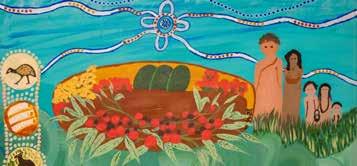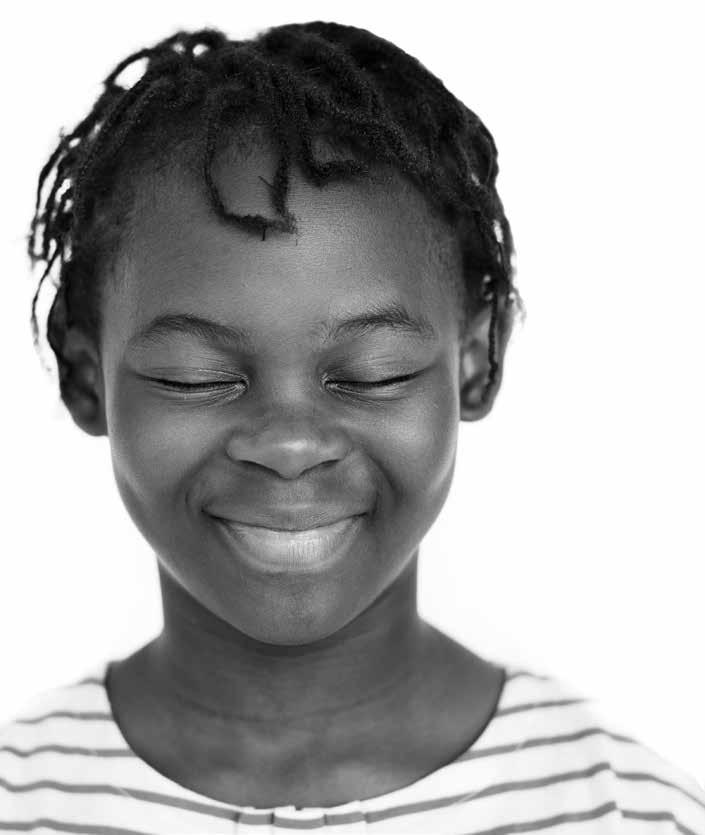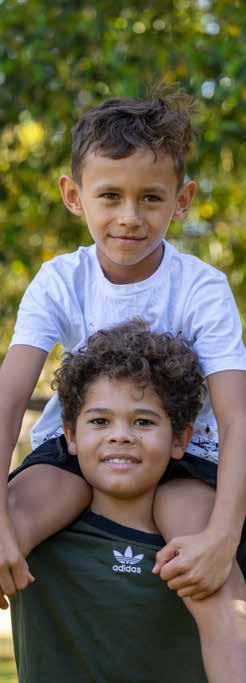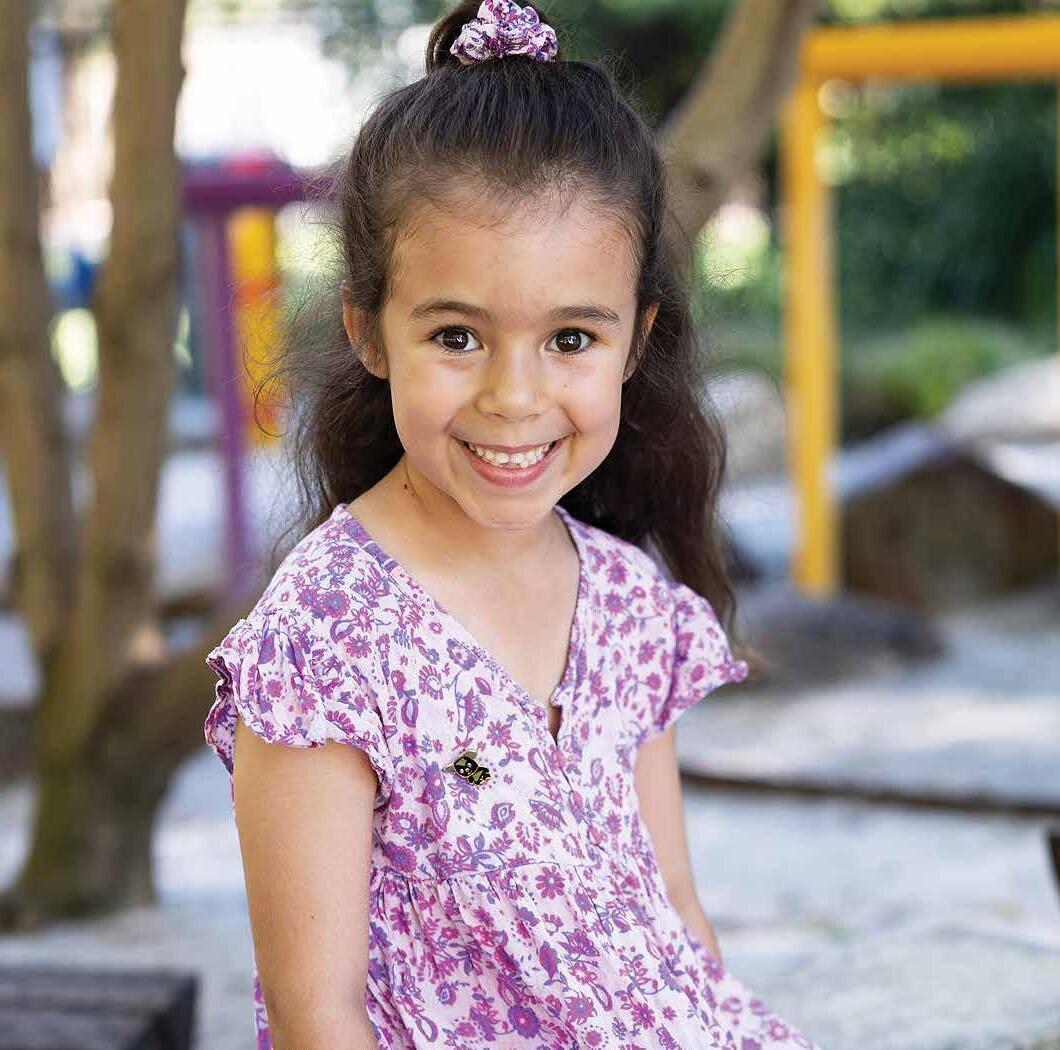
MESSAGE FROM THE CHAIR & EXECUTIVE DIRECTOR BOARD OF DIRECTORS 2021 HIGHLIGHTS
WHO WE ARE AND WHAT WE DO OUR FINANCIALS
are at the of everything we do
Telethon Kids Institute acknowledges Aboriginal and Torres Strait Islander people as the Traditional Custodians of the land and waters of Australia. We also acknowledge the Nyoongar Wadjuk, Yawuru, Kariyarra and Kaurna Elders, their people and their land upon which the Institute is located and seek their wisdom in our work to improve the health and development of all children.

At the Telethon Kids Institute, our vision is simple – happy healthy kids
We bring together community, researchers, practitioners, policymakers and funders, who share our mission to improve the health, development and lives of children and young people through excellence in research. Importantly, we want knowledge applied so it makes a difference.
Find out more at telethonkids.org.au
Wherever you were in the world, the unifying theme for 2021 was the COVID-19 pandemic. As an organisation headquartered in Western Australia, our experience was quite different to most.

Cut off through strict border controls from the rest of Australia and the world, we were largely protected from the virus and lockdowns. While the isolation delivered many benefits, it also brought significant challenges, particularly as we sought to grow our workforce, collaborations and knowledge exchange that are so essential to global health and medical research. The pandemic has been a powerful change mechanism that has forced us to question and iterate in unprecedented ways.
We responded by focussing our efforts on what we could do to continue to transform from good to great. Where could we be more creative or work smarter or faster? How could we partner better to deliver impact outside of our immediate domain, yet serve the needs of our community? What could we do to support our people so that their careers survived these extraordinary times, and were poised to thrive as the environment invariably evolves to our new “normal.”
In this report, we are delighted to present some of our achievements, learnings, and insights into our approach as we reconnect with each other and the world.
OUR RESEARCH
Our Institute researchers had a highly successful year, awarded almost $57 million across 90 grants, which was a 31% increase on the previous year.
Highlights include the CIRCA DIEM Clinical Trial to improve development for the most premature babies, three NHMRC Investigator grants, a Synergy grant to tackle Rheumatic Fever infections, and funding from the Medical Research Future Fund to investigate the comparative effectiveness of COVID-19 booster vaccines.

At a State level, Telethon Kids Institute has been a significant beneficiary of the Future Health Research and Innovation Fund, receiving nearly 30% of the Biobank Interim Support Program, 54% of the Emerging Leaders Investigator grants, 29% of the Near Miss Award grants and just over 50% of the distribution from the Research Translation Projects Program.
We are grateful for the ongoing support of the Federal and State governments.
We actively scan new frontiers. In 2021, we ramped up our new Telethon Kids Innovation and Commercialisation Office to support us to work in more agile ways and champion the identification, development and commercialisation of the health research, technology and innovations developed by our scientists and clinicians. We want to increase our partnering with industry and investors to accelerate translation of research to improve children’s health.
Already we have seen a significant increase in invention disclosures and provisional patent filings, and a new approach to developing big grants. As part of this commitment, the Institute is seed funding projects with the aim of more rapidly understanding their potential.
A frustration for our researchers has been the lengthy disruptions to clinical and community research projects as a result of COVID-19 restrictions to hospital sites and travel to regional and remote communities. This has significantly hampered clinical assessments and data collection. We are hopeful the remaining restrictions will soon lift so we can continue this important research and deliver on the undertakings we have made to participants and their families.
OUR COMMUNITY
Our community drives the work at Telethon Kids Institute. Nearly 75% of studies have active community input into study design and rollout, thousands more children and families participate in our projects, and others contribute through advocacy and fundraising. So as our community grappled with a pandemic experience that was so different to others, we were there to support and advise. We were able to watch, analyse and learn from the experience of others who battled the virus before us. We were able to advocate for the benefits of vaccination and keeping schools open, encouraging increased ventilation and young children to wear masks. We ran and contributed to seminars for families, government agencies and health professionals, and special sessions designed specifically for diverse groups. We produced trusted content for our website and social media that received strong engagement and helped to cut through some of the fear tactics of others.
Our COVID-19 modelling team, a partnership with Curtin University, designed a new software tool to build a “virtual WA” by using big data to map out the state’s unique physical and social geography, creating the most detailed COVID-19 modelling ever applied to an Australian outbreak and providing valuable insights for pandemic management once our borders re-opened. With heightened awareness of the value of health and medical research, the launch of our schools initiative was particularly timely. In its first full year, we’ve inspired over 2,000 children to consider a career in science and research, with more than 40 school excursions, and 36 holiday workshops in the Discovery Centre. It’s another way we can give back to the community that gives so much to us.
OUR PEOPLE
Recognising and retaining our staff became even more critical as WA went through its extended period of isolation. It prompted us to undertake a People Review, to see how we were tracking against our Strategic Plan and do a deep dive into the culture, the barriers and the enablers of our work.
While staff engagement scores are at historical highs, we know that the research environment is going through a period of change and uncertainty that is adding to the pressure on our researchers, particularly those who are early or mid-career. The review has prompted valuable conversations around the ideal culture for an organisation like ours to thrive, how to improve career trajectories, and how we can grow and support our leaders at all levels. It’s a program of work that will keep us busy for the coming year and well beyond, and will lay a solid foundation for our future.
In terms of our people, there is much to celebrate.
Professor Helen Milroy was named Western Australia’s 2021 Australian of the Year in recognition of her untiring efforts to improve the mental health of Aboriginal people and of children and young people. She was a finalist for the 2021 Human Rights Medal, received the Best Young Children’s Reader in the 2021 Whitley Awards for her fun and boldly illustrated children’s book, Backyard Birds, and was profiled in The Lancet for her trailblazing work.
We announced the inaugural winners of the Telethon Kids Ascend Fellowships, a prestigious new award that recognises and rewards those rising stars who are going to be a significant part of the future of research at the Institute. Asha Bowen, Emily Fletcher, Lea-Ann Kirkham, Rishi Kotecha, Ashleigh Lin, and Debbie Palmer demonstrated not only an excellent track record in research and leadership, but also articulated a bold vision for their research over the next five years.
We welcomed 248 new starters, increasing our staff numbers by 14%.
Among them were some very special recruits, including:
• Internationally-acclaimed Aboriginal researcher and clinician Professor Alex Brown, who was appointed as Professor of Indigenous Genomics as part of a new strategic partnership with The Australian National University (ANU).
• Head of the Immunology and Breastfeeding, Professor Valerie Verhasselt who revolutionised the field of allergy prevention through early oral allergen exposure and continues to explore the impacts of breastfeeding on immune development and health.
• Renowned burns specialist Professor Fiona Wood formalised her long-standing connection to the Institute, leading a team in Paediatric Burn Care.
In line with our strategic priority to ensure our research is both useful and used, we welcomed Fiona Roche as Senior Advisor in Government Relations. Fiona has had a long career in the State public sector, most notably leading the science portfolio for five years.
An interesting indicator of the past year is that our staff spent 211,940 minutes in video conference calls in the dedicated meeting rooms at our PCH site, and many more hours from home. The rapid adoption of online technologies for conferences and meetings has in some ways overcome the barriers of distance and enabled more of our researchers to present or attend without a requirement for extensive travel. It is hoped that a continuation of a hybrid approach to these events, where people may attend in person or online, will continue to mediate some of the equity issues in terms of access to these important sessions.
FINANCIAL SUSTAINABILITY
Telethon Kids finished the financial year with an operating surplus of $9.84 million, representing a 68% increase on 2020, as well as achieving an unqualified audit. Given the potential impact of the global pandemic on the Institute’s research continuity, this outcome represents a remarkable result. A significant portion of the surplus relates to the strong performance of the Institute’s investments, which greatly benefited from elevated global and domestic market returns and valuations during 2021.
There was a 12.1% increase in total assets held on the Institute’s Balance Sheet to $222.4 million, primarily due to committed research funding and investment income. Total equity held on the Balance Sheet also increased in value by 11.5% to $94.9 million.
Strengthening our Balance Sheet contributes to the long-term strategy of increasing the Institute’s financial sustainability, both to buffer against the fluctuations and vagaries of Australia’s research funding environment, and enable increased investment in research excellence and innovation. Greater financial viability will be particularly important as we navigate the post-COVID economic environment, which for medical research in Australia still remains largely uncertain.
We sincerely thank Deloitte, as the Institute’s Honorary Auditor, for the excellent work done on this year’s audit.


OUR THANKS
Our Principal Partner, Telethon, continues to achieve remarkable levels of community engagement and support, setting yet another fundraising record in 2021. We are humbled to be one of their beneficiaries, and proud to wear the Telethon name as a reflection of the enormous support we have received over so many years. The Philanthropy Report on page 18 acknowledges the inspiring generosity of our many supporters, including trusts, corporations, foundations, individuals and families.

Our Board of Directors volunteer their time and skills and have an active role in the strategy and governance standards that underpin our success. This year, we have welcomed Ed Bostock, Chief Financial Officer with Wesfarmers Health to our Board. He brings a wealth of experience in investment, business development and corporate strategy across a broad range of industries. Our thanks to Ed and all the Telethon Kids Directors for their substantial and ongoing contributions.
A heartfelt thanks to one of our research stars, Professor Donna Cross, who has recently retired. Donna has just been awarded an OAM for her service to youth mental health and wellbeing. She was the WA Australian of the Year in 2012, and the 2017 WA Scientist of the Year, such is the esteem in which she is held. We were so fortunate to have her warmth and intellect at Telethon Kids, and we wish her all the best.
Congratulations also to Institute founding researchers Professors Carol Bower and Steve Zubrick, who were recently appointed the distinguished accolade of Emeritus Professor of UWA.
Finally, our thanks to the staff, students and supporters of Telethon Kids Institute. Your ability to adapt and innovate through a couple of years of unprecedented challenge, has been remarkable. The passion for making a difference has not waned, and we look with confidence to the year ahead as we work together to improve the health, development and lives of children and young people through excellence in research.
BOARD OF DIRECTORS 8
HON JULIE BISHOP, CHAIR

Julie joined the Board as Chair in August 2019. The Former Australian Foreign Affairs Minister is the Chancellor of the Australian National University, Chair of the Princes’ Trust Australia, Director of Julie Bishop and Partners, and Patron of Shooting Stars. She is a Member of the International Advisory Boards of Afiniti and the Human Vaccines Project, and Member of the Global Board of Advisors of the Council on Foreign Affairs, Member of the Trilateral Commission Capitalism Task force, and Member of the Massachusetts Institute of Technology (MIT) AI Policy Forum Steering Committee. Julie chairs the Institute’s Remuneration and Nomination Committee, and Development Committee.
JONATHAN CARAPETIS AM
Jonathan became Executive Director and Board Member of the Telethon Kids Institute in July 2012. He is President of the Association of Australian Medical Research Institutes (AAMRI) WA and Past President of AAMRI nationally. Jonathan is a Member of the National COVID-19 Health and Research Advisory Committee, the Australian Indigenous Doctors’ Association, WA RHD Program Governance Group, The University of Western Australia Forrest Foundation Selection Committee, the Executive Committee of the Strep A Vaccine Consortium (SAVAC), and Child Health Research Strategic Council WA. He is also Chair of the Methodist Ladies College Foundation.
ED BOSTOCK
Ed joined the Board in August 2021 and is a member of the Institute’s Development Committee and Remuneration and Nomination Committee. Ed is Chair of Wespine Industries Pty Ltd and the Chief Financial Officer of Wesfarmers Health.




FIONA DRUMMOND
Fiona joined the Telethon Kids Institute Board in November 2017 and Chairs the Institute’s Finance Committee and is a Member of the Remuneration and Nomination Committee. She is the Ernst & Young Managing Partner Western Region and Assurance Partner, a Fellow of Chartered Accountants in Australia & New Zealand, a Fellow of the Financial Services Institute of Australia, a Member of the Australian Institute of Company Directors, and a Fellow of the Leadership WA Program.
JOZEF GÉCZ
Jozef joined the Board of Telethon Kids in 2016 and is a member of the Institute’s Risk and Compliance Committee. Jozef is an NHMRC Senior Principal Research Fellow, Honorary Chair of Channel 7 Children’s Research Foundation for the Prevention of Childhood Disability, and Professor of Human Genetics at the Adelaide Medical School, University of Adelaide. He is a Fellow of the Australian Academy of Health and Medical Sciences and the Australian Academy of Science, and Founding Fellow of the Faculty of Science of RCPA. Jozef is also a Member of the National Steering Committee of the Australian Genomics Health Alliance and Board of the European Society of Human Genetics. Jozef was awarded the 2019 South Australian Scientist of the Year.
JANE MUIRSMITH
Jane is Executive Director of Lenox Hill and joined the Telethon Kids Board in February 2018. She is Chair of HealthDirect Australia and Non-Executive Director of the Australian Finance Group and Cedar Woods Properties. Jane is a Fellow of Chartered Accountants in Australia and New Zealand and Member, Corporate Sector Advisory Committee, A &NZ. She is a Graduate of the Australian Institute of Company Directors and a Member of the Institute’s Risk and Compliance Committee.

NICOLE O’CONNOR
Nicole joined the Telethon Kids Board in 2016 and is Chair of the Risk and Compliance Committee and also a member of the Remuneration and Nomination Committee. Nicole is WA State Manager Public Sector at Amazon Web Services and a Non-Executive Director of Remsense. Nicole is a Graduate of the Australian Institute of Company Directors.


ROHAN WILLIAMS
Rohan joined the Telethon Kids Board in 2013 and is a Member of the Institute’s Finance Committee. He is Director of Neap Consulting and was Former Executive Chairman, CEO and Founder of Dacian Gold Limited. Rohan is a Member of the Australian Institute of Mining and Metallurgy.

HON BEN WYATT
Ben joined the Board in April 2021 and is a member of the Institute’s Finance Committee. Ben is a Non-Executive Director of Woodside, Rio Tinto, the West Coast Eagles and Perth International Arts Festival. He is the former WA Treasurer and Minister for Finance; Aboriginal Affairs; and Lands.

In a world-first study, our Autism researchers found that a parent-led therapy that supports the social development of babies displaying early signs of autism significantly reduced the likelihood of an autism diagnosis being made in early childhood. An international research team led by Professor Andrew Whitehouse found that a clinician diagnosis of autism at age three was only a third as likely in children who received the pre-emptive therapy (iBASIS-VIPP) compared to those who received treatment as usual. The findings were the first evidence worldwide that a pre-emptive intervention during infancy could lead to such a significant improvement in children’s social development that they then fell below the threshold for a clinical diagnosis of autism.




Former West Australian Treasurer, Hon Ben Wyatt, joined the Board of Telethon Kids Institute in his first position after retiring from political life.

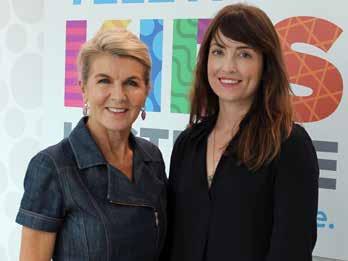

Aboriginal researcher and clinician Dr Alex Brown was appointed Professor of Indigenous Genomics as part of a new strategic partnership between Telethon Kids Institute and The Australian National University (ANU). The appointment reflected a joint commitment of both organisations to working with community to improve the health and wellbeing of Aboriginal and Torres Strait Islander people.
Youth mental health researcher Dr Amy Finlay-Jones was awarded the inaugural Julie Bishop Award to support her work focusing on improving mental health and developmental outcomes across the early life course. Dr Finlay-Jones was also awarded the prestigious Healthway Fellowship for 2021 for a project focussed on identifying the early signs in babies, toddlers and young children which could indicate that they are more likely to develop a mental illness later in life.
A study looking at how Western Australian families coped with COVID-19 restrictions found that while organised sports and activities dropped sharply due to the restrictions, many parents filled the void with unstructured physical activity like outdoor play, bike rides and family walks. On average, kids from the families who were surveyed engaged in 146 more minutes of unstructured play per week than they had pre-lockdown.
We launched our Aboriginal Employment and Career Development Strategy, aimed at building a culturally-secure work environment by continuing to embed Aboriginal health and wellbeing into our research, and most importantly, continuing to listen to and be guided by a strong Aboriginal voice in all that we do. Within the Strategy is the Aboriginal Recruitment Pathway program, providing us with a framework to position the Institute as an employer of choice for Aboriginal students and staff across both research and professional service fields of work.
Respiratory researcher Niamh Troy was named joint winner of the Exxon Mobile Student Scientist of the Year award at the 2021 Premier’s Science Awards. Professor Britta Regli-von UngernSternberg was a finalist for Scientist of the Year 2021, PhD candidate Katherine Landwehr was also a finalist for ExxonMobil Student Scientist of the Year and Danielle Headland was a finalist for Shell Aboriginal STEM student of the year.

Mental health researcher Professor Helen Milroy was a finalist for the 2021 Human Rights Medal in recognition of her contributions as an Aboriginal doctor, child psychiatrist, professor, commissioner, storyteller, artist and advocate. The Australian Human Rights Commission holds the awards annually to celebrate human rights achievements and to acknowledge and share the important work of organisations, businesses and individuals across the nation.

Professors Peter Gething and Nick Golding, from Telethon Kids Institute and Curtin University, were named among the world’s most highly cited scientists in the Clarivate Analytics Highly Cited Researchers List. The list recognises global pioneers in their fields, demonstrated by the production of multiple highly cited papers during the past decade.
Youth mental health researcher Dr Nicole Hill was one of eight early career researchers to be awarded the Forrest Research Foundation’s Prospect Fellowship for her project aiming to map suicide hotspots and avert further suicides in WA.


Research led by Dr Gina Trapp found Perth children are being exposed to thousands of junk food ads every year on their way to and from school. The research team recreated walking, bus and train routes to 24 Perth high schools – covering nearly 27,000 students – and logged how many junk food ads were visible along each route. The results reveal that of the 4,016 advertisements observed along the 72 routes, almost half were for food. Of those food ads, 80 per cent advertised junk food. Just 8 per cent advertised healthy foods.

Autism researcher and CliniKids Director


Professor Andrew Whitehouse was inducted as a Fellow to the Australian Academy of Health and Medical Sciences, making him the youngest-ever Fellow elected to the prestigious academy. Professor Whitehouse was elected for his major scientific advances in autism assessment and intervention and is one of only a handful of Fellows in the Academy’s history whose research focus is autism.
The state-wide Mind the Distance survey found there are significant benefits to offering youth mental health treatment via telehealth services. The survey of young people, carers and mental health professionals after the first COVID lockdown in WA, in mid-2020, found that the switch to digital or telehealth services was beneficial for some young people receiving mental health treatment, while others missed the opportunity to communicate with someone face-to-face. The findings support growing calls for telehealth services to be an ongoing feature in mental health care.
Respiratory researchers examined the ingredients of more than 60 of Australia’s most popular over-the-counter, “nicotinefree” liquids used for electronic cigarettes (in their original and aged forms) and found the majority of e-liquids contained toxic and harmful substances that are known to cause respiratory issues and lung damage when inhaled. Equally concerning, nicotine was present in nine per cent of the liquids tested despite them being marketed as nicotine free.
Dr Hayley Passmore was among four nominees for Western Australia’s 2022 Young Australian of the Year. She was also named an AMP Foundation Tomorrow Maker in recognition of her efforts to better support young people in detention who have neurodisability.

Our Language in Little Ones study found University-educated parents in Australia speak more words to their children on average than parents with only a high-school education, with the gap emerging at around 18 months of age. The study gathered data from around 250 infants in Western Australia, South Australia and Queensland from 2017 to 2019 using a small device worn by the child which counted the number of words they hear and speak at home with the ability to exclude other sources like radio or television.

Two Telethon Kids research teams were awarded National Health and Medical Research Council Ideas Grants in 2021. A research team led by Dr Brad Farrant was awarded funding for a project, co-designed with Aboriginal Elders and families, which will bring an intergenerational approach to the intergenerational problem of poor outcomes experienced by Aboriginal children in out-ofhome care. Professor Aleksandra Filipovska will lead a team applying innovative RNA editing technology to reverse mutations that cause mitochondrial diseases, the most common group of inherited metabolic diseases worldwide, affecting as many as 1 in 5,000 live births.
We joined with other WA public health and medical groups to call for an end to sponsorship of sport by junk food companies, with one of the largest junk food companies in the world granted official sponsorship of the 2021 Tokyo Olympics in Japan.

Cancer researcher Dr Raelene Endersby was awarded a Cancer Council WA Research Fellowship for research to develop less toxic treatments and fewer side effect for children with brain cancer. Dr Endersby will seek to test two experimental cancer drugs combined with low-dose radiation to determine if the combination is more effective for children with medulloblastoma.

The Malaria Atlas Project - based at the Institute - joined a consortium of partners from the USA, UK and Australia on a project that will take a data-centred approach to work with malaria affected countries to ensure they’re making the most effective and efficient use of resources to fight malaria and save lives.
Funded by the US President’s Malaria Initiative (PMI), the five-year PMI INFORM project brings together researchers and malaria control experts from across the world to do use data and evidence to guide control efforts for malaria.

Associate Professor Chris Blyth was named among WA’s most outstanding young scientists at the 2021 Young Tall Poppy Science Awards. He was one of seven Western Australian Young Tall Poppy Scientist winners selected in 2021 honouring up-andcoming scientists who combine world-class research with a passionate commitment to communicating science.


The CIRCA DIEM study led by Professor Jane Pillow received a Clinical Trials grant from the National Health and Medical Research Council to test a simple intervention using tiny eye masks and earplugs at night-time to kickstart the circadian rhythms of preterm babies. Almost 1,000 preterm babies from neonatal intensive care units across Australia will be randomised to either receive routine care or be fitted with eye masks and earplugs between 8pm and 6am, while being exposed to a comfortable level of lighting and noise during the daytime. Researchers will follow the babies’ progress for two years to see whether the simple intervention leads to better health and developmental outcomes.
Professor Alex Brown will establish and lead a National Indigenous Genomics Consortium, using cutting-edge medical science to deliver better health outcomes for Indigenous Australians. The Consortium was awarded a prestigious $5 milliondollar Synergy grant by the National Health and Medical Research Council to drive the establishment of Australia's first large scale efforts in Indigenous genomics. Genomics is the study of genes encoded in an individual’s genome – the set of instructions in our DNA.

Pioneering health consumer advocate


Anne McKenzie AM was awarded the National Health and Medical Research Council’s prestigious Consumer Engagement Award in recognition of an almost 30year career during which she has helped thousands of Australian clinicians and researchers understand the value of listening to consumers.

An analysis of data from the DETECT-Schools Study showed that WA students, their families and teachers have adapted well to the challenges of the COVID-19 pandemic, but many reported higher levels of strain, stress and pressure. The Institute conducted wellbeing surveys in 79 WA schools and found increased levels of emotional distress among students and families with an emotional distress scale in the study showing the rate of emotional distress among secondary school students (38%) has nearly tripled since the last benchmark survey in 2014 (14%). It’s not known how much of this is attributable to COVID-19. Just over half of the students surveyed reported that COVID-19 had little or no negative impact on their lives, while 65 per cent said they felt ‘confident’ about their future.
The first study looking at the direct health impacts of predicted carbon dioxide levels showed increased atmospheric carbon dioxide had a direct impact on both lung function and structure. Breathing in higher levels of carbon dioxide in the atmosphere causes lung damage including altered alveoli - which is the critical part of the lung that helps with gas exchange –meaning greater difficulty breathing.
Youth suicide prevention researcher
Dr Penelope Strauss was awarded a prestigious Post-Doctoral Fellowship from Suicide Prevention Australia to develop and trial a world-first intervention aimed at preventing suicide among LGBTQA+ young people.


An international research team led by Professor Jonathan Carapetis and Associate Professor Asha Bowen was awarded a $5 million Synergy Grant by the National Health and Medical Research Council to fill a critical gap in knowledge around acute rheumatic fever (ARF). The five-year project will bring together a diverse team of researchers from Australia and the United States with skills ranging from research with Aboriginal communities, infectious diseases, molecular biology, environmental health, housing, clinical trials, spatial demography, and data linkage.
Institute Director Professor Jonathan Carapetis AM was the winner of the Professions Award at the 2021 Western Australian of the Year Awards. Professor Juli Coffin was a finalist for the Aboriginal Award, Dr Shannon Simpson was a finalist for the Community Award and Dr Hayley Passmore was a finalist for the Youth Award.

Cancer researcher Dr Ben Wylie was awarded a Cancer Council WA Post-Doctoral Fellowship for his project to help kids with sarcoma. The three-year fellowship will work towards advancing development of a biodegradable gel to deliver immunotherapy into the wound area after surgery to remove the cancer, reducing the need for toxic treatments.


A study of ORIGINS families revealed a positive aspect to the COVID pandemic, with families found to benefit from the extra time together during lockdowns and mobile devices proving useful for helping them stay in touch with extended family and friends and for activities such as online classes. The study also found lockdowns and other restrictions affected the mental health of some parents who felt overwhelmed, isolated and uncertain about the future. Some families also reported that mobile devices were a source of distraction that, at times, hampered family interactions.

Three prestigious National Health and Medical Research Council Investigator Grants were awarded to Professor Stephen Stick, Professor Britta Reglivon Ungern-Sternberg and Associate Professor Ashleigh Lin.
An evidence-based app designed to support pregnant women to live a healthy lifestyle and give their baby the best start has been launched by Telethon Kids Institute and the Joondalup Health Campus. The PLAN app – Pregnancy Lifestyle Activity Nutrition - is scientifically-designed based on behaviour change theory to help women attain achievable health and weight goals during pregnancy and is available to anyone for free via the Apple App Store and Google Play Store.
Along with researchers from the USA and Germany, our cancer researchers developed an innovative approach to treating children with medulloblastoma, using a two-pronged attack to stop cancer cells from repairing themselves. The team conducted extensive laboratory modelling on a number of different therapies and discovered that a new type of molecularly-targeted drug –prexasertib – was able to “switch off” the cancer cells’ ability to repair itself when used in conjunction with chemotherapy. Those findings paved the way for a major clinical trial, called the SJ Eliot Trial, of the drug combination, currently underway in Australia and the United States.
Researchers from Telethon Kids Institute, Curtin University and Tulane University in New Orleans developed sophisticated data modelling that could help eradicate malaria in Haiti, the poorest country in the Caribbean and one of the few countries in the region that have not mostly wiped out the mosquito-borne disease. Associate Professor Ewan Cameron led the team, using a range of different health data to create a complete picture of where malaria infections are taking place in Haiti. This information has been used to directly inform Haiti’s national response to malaria.
Institute Director Professor Jonathan Carapetis AM was made an Honorary Doctor of Medicine by Curtin University in recognition of his outstanding contribution to the local, national and international field of medicine and healthcare.



